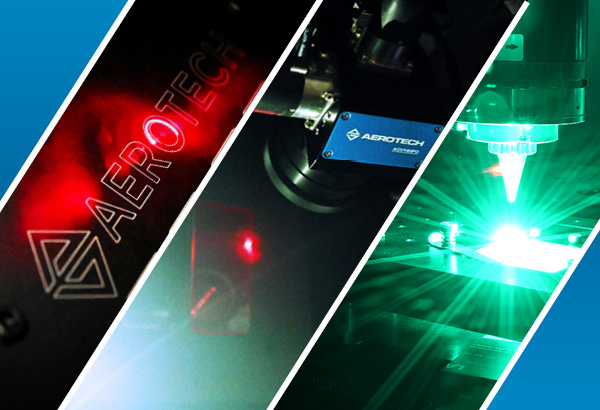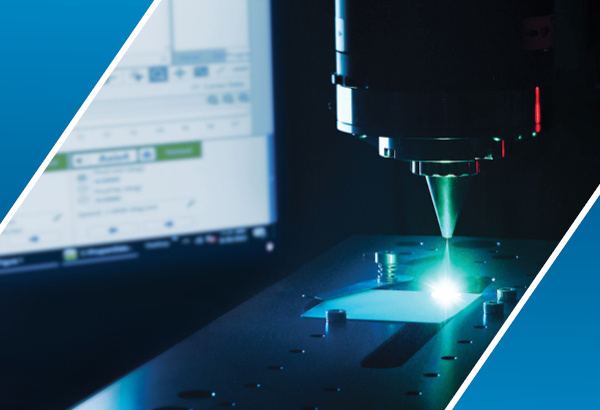Optimizing Galvanometer Laser Scanners for Precision
The Critical Role of Precision in Laser Processing In laser processing, precision is not merely a beneficial attribute—it is an operational...
3 min read
 Bryan Germann
Dec 6, 2024 4:47:21 PM
Bryan Germann
Dec 6, 2024 4:47:21 PM

Precision in laser processing has transitioned from being a competitive advantage to an operational necessity. Sectors such as manufacturing, automotive, and electronics increasingly rely on laser applications that demand unmatched precision to ensure the quality and functionality of intricate products. At the heart of this technological advancement lies the galvanometer laser scanner, often referred to as a galvo laser scanner, which leverages high-speed mirrors to direct laser beams with exceptional accuracy. These scanners are integral to executing complex tasks such as engraving, cutting, and 3D printing.
The unmatched precision of a galvo laser scanner is critical to meeting the stringent standards of modern industrial applications. However, achieving this precision at the speeds required by contemporary processes presents a significant challenge. As industries push for faster processing to maximize throughput, the balance between speed and accuracy becomes increasingly vital. Galvanometer laser scanners, with their advanced control mechanisms and innovative designs, are uniquely positioned to meet this dual demand.
A persistent challenge in laser processing is the traditional trade-off between speed and precision. As the speed of laser systems increases, the potential for positional inaccuracies grows—a limitation long observed in galvo laser scanner systems. The inherent physics of motion control dictates that faster movements often introduce vibrations, which can disrupt the precise trajectory of the laser beam.
Traditional control protocols, such as the XY2-100 standard, exacerbate this issue by modifying trajectories to maintain velocity and prevent overshoot. This “cutting corners” approach compromises positional accuracy, especially during high accelerations. With industrial applications demanding both precision and speed, there is an urgent need for advanced solutions that address these inherent trade-offs.
Mechanical design breakthroughs have significantly bolstered the performance of galvo laser scanner systems, effectively addressing the balance between speed and precision. Innovations in motor technology and scan head architecture have minimized inertia while maximizing structural stiffness. These advancements allow for faster and more precise movements, enabling applications that require high-speed accuracy.
Optimizing the ratio between the Field-of-View (FOV) and Effective Focal Length (EFL) has expanded scanning areas without sacrificing precision. Additionally, cutting-edge thermal management systems have mitigated heat loads, ensuring performance consistency during extended operations. These enhancements not only elevate the dynamic performance of galvo laser scan heads but also reinforce their reliability for demanding industrial applications, making them indispensable for achieving high throughput and precision.
To push the boundaries of accuracy, modern galvanometer laser scanners leverage advanced motion control techniques. High-resolution feedback systems and sophisticated algorithms enable real-time trajectory adjustments, reducing errors caused by dither and jitter. These systems deliver unparalleled precision, even in high-acceleration applications.
Moreover, open, low-level control capabilities empower users to fine-tune motion profiles for specific needs, a critical feature for tasks requiring constant-velocity movements. For instance, Aerotech’s AGV20-XPO-E2 demonstrates how integrating advanced motion controls can reduce peak-to-peak errors and improve tracking accuracy, even under extreme industrial conditions.
The Field-of-View (FOV) is a defining factor in the performance of a galvanometer laser scanner. A larger FOV allows for processing more components in a single setup, increasing productivity. However, expanding the FOV can introduce challenges such as stitching errors and reduced resolution.
Modern galvo laser scanner systems overcome these hurdles by employing longer EFLs alongside high-resolution feedback mechanisms. This approach ensures accuracy across larger scanning fields, enabling scalable productivity without compromising the precision required for intricate laser processing tasks. Industries ranging from small-scale engravings to large-format cutting benefit from these innovations.
The future of galvanometer laser scanners is bright, driven by technological advancements poised to redefine the standards of precision and speed. Artificial intelligence (AI) and machine learning are set to play transformative roles by optimizing motion control and enabling predictive maintenance. These advancements will further enhance the reliability and efficiency of galvo laser scanners in industrial settings.
Additionally, innovations in materials science promise lighter and stiffer components, reducing inertia and improving dynamic performance. As these advancements become mainstream, the potential for galvo laser scanner systems to revolutionize industries through unmatched precision and efficiency will only grow.
Galvanometer laser scanners represent the pinnacle of precision in laser processing technology. Through innovative mechanical designs and advanced motion control systems, these scanners are overcoming traditional limitations of speed and accuracy, setting new standards in industrial productivity. As the technology evolves, galvo laser scanners will continue to play a transformative role, enabling industries to achieve unprecedented precision and throughput.
The AGV-XPO 2-axis laser scan head combines a rigid, low inertia rotor and nanometer-resolution digital feedback encoder so you’ll see the highest throughput and best part quality for applications with long focal lengths and low dither requirements. Coupled with our Automation1 control platform, it enables unmatched discrete feedback of position error and tuning ability.


The Critical Role of Precision in Laser Processing In laser processing, precision is not merely a beneficial attribute—it is an operational...

The Critical Role of Precision in Laser Processing Precision is a non-negotiable attribute across industries such as manufacturing, automotive,...